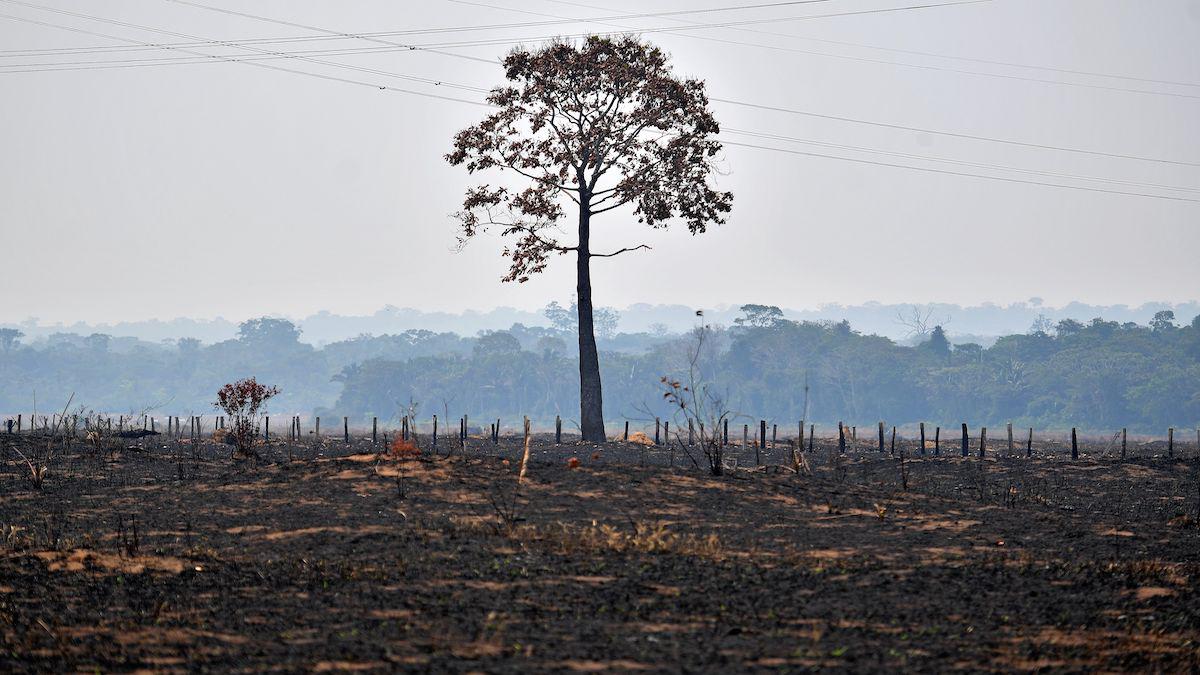
No Sector of Society Is Moving Fast Enough to Avoid Climate Catastrophe, New Report Warns

As world leaders prepare to gather for the UN Climate Change Conference (COP26) in Glasgow this Sunday, a new report warns that no sector of society is currently doing enough to limit global warming to 1.5 degrees Celsius above pre-industrial levels.
The report, released today by the Systems Change Lab, looked at 40 indicators across important sectors like power, buildings, industry, transportation, land use and agriculture that need to rapidly change in order to avert climate catastrophe. While there are signs of hope in key areas, the report found that none of the 40 indicators are currently set to meet their 2030 targets.
“While there are encouraging signs of progress across many sectors, it is clear that the climate crisis is still outpacing our response,” World Resources Institute (WRI) president and CEO Ani Dasgupta said in a press release emailed to EcoWatch. “This report is a call to action for policymakers, CEOs and others to take the bold, unprecedented action necessary to point us toward a safer and fairer future.”
Limiting global warming to 1.5 degrees Celsius is essential to avoiding the worst impacts of the climate crisis, as a 2018 Intergovernmental Panel on Climate Change (IPCC) report warned. However, if no action is taken to reduce greenhouse gas emissions, temperatures could actually rise to between 3.3 and 5.7 degrees Celsius by 2100, with devastating impacts for ecosystems and communities, according to the most recent IPCC report. Avoiding further temperature increases means halving emissions by 2030 and achieving net-zero by 2050, the IPCC has said.
The new report, released by the Bezos Earth Fund, UN High-Level Climate Champions, Climate Action Tracker, ClimateWorks Foundation and World Resources Institute, looks at what still needs to be done to keep the world on track to 1.5 degrees of warming, and the answer is quite a lot.
While none of the 40 indicators the report authors assessed are moving fast enough, some are at least moving steadily in the right direction. In particular, the share of electricity generated by renewable sources like wind and solar has grown at 15 percent per year over the last five years. Electric vehicle sales are also on the rise, with a compound annual growth rate of 50% from 2015 to 2020.
In other areas, progress is less steady. The report warned that three indicators were stagnating: reducing the emissions of cement production, reducing the emissions of steel production and setting a price on carbon. A further three indicators were moving in the wrong direction: reducing the number of private car trips, reducing deforestation and reducing agricultural production.
“We need complete u-turns from these areas,” co-author and Bezos Earth Fund chief of science Kelly Levin told The Guardian. “With climate change you can’t just head in the right direction, you need to do it at pace. Without that, we will reach disastrous tipping points.”
People living in wealthier countries can help turn the tide on agricultural emissions by reducing beef consumption 1.5 times faster than currently, limiting themselves to one-and-a-half burgers per person per week.
The report highlighted other changes that need to be ramped up: the use of coal in electricity generation needs to fall five times faster, reforestation and wetlands restoration need to move around three times faster each and climate finance needs to increase by a factor of 13.
Overall, the report authors said that the technology exists to make the necessary changes, but it needs the support of business leaders and policy makers.
“Humanity is only just waking up to its ability to drive genuine systemic change,” Nigel Topping, UN High Level Climate Champion for COP26, said in the press release. “We have the capacity to radically scale up climate action through the exponential growth in disruptive technologies – if we agree to do what it takes, and put the right policies and finance in place fast to deliver a healthier, cleaner zero-carbon world in time.”

 233k
233k  41k
41k  Subscribe
Subscribe 